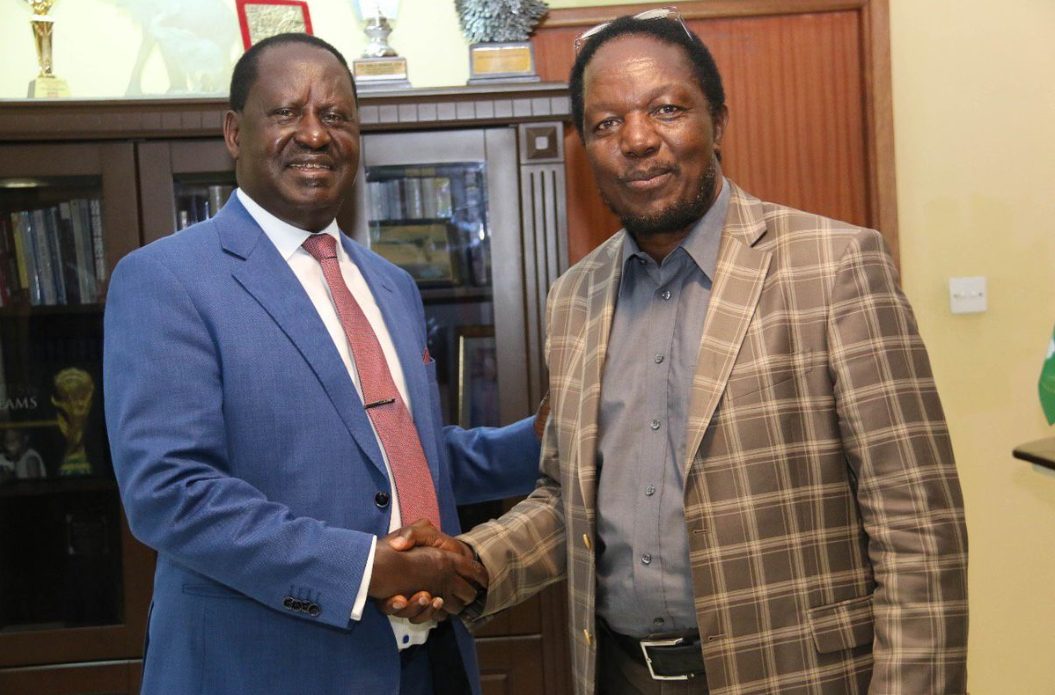As the political landscape of Kenya shifts with the possibility of President William Ruto forming a government of national unity in response to the current crisis, a pressing question emerges: who will represent the diverse communities within his administration?
The Gusii community, in particular, is keenly observing, eager to see whether their interests will be adequately represented in this reshuffled government.

Amidst the discussions and speculations about potential nominees, a name that frequently pops up in conversations is that of former Kitutu Masaba MP Timothy BosireTimothy Bosire.
However, before we entertain any notions of Bosire’s suitability for high office, it’s imperative to scrutinize his record meticulously.
In the wake of publishing profiles on various potential nominees for this critical phase in Kenya’s governance, my inbox has been flooded with claims suggesting that Bosire deserves a spot in the cabinet.
Such recommendations might stem from his previous political engagements or longstanding affiliations but it’s crucial to cut through the noise and critically assess whether Bosire genuinely embodies the qualities necessary for effective leadership.
The necessity for this scrutiny is heightened by the apparent inadequacies in parliamentary oversight, which often leave the vetting process wanting.
It falls upon us—the public—to ensure that those who are nominated for high offices are genuinely deserving of the responsibility.
When evaluating potential leaders for high offices in the upcoming government of national unity, it’s vital to scrutinize their past performance meticulously.
In this regard, Timothy Bosire’s tenure as Member of Parliament for Kitutu Masaba provides a sobering case study.
His time in office is marked by a series of unfulfilled promises, mismanagement, and a glaring lack of tangible achievements.
It’s time to dissect these failures to understand why his name should not be associated with any influential role in the new government.
Timothy Bosire served as the Member of Parliament for Kitutu Masaba for two consecutive terms from 2008 to 2013 and again from 2013 to 2017.
He had ample opportunity to make substantial impacts but unfortunately the reality of his tenure fell drastically short of expectations.
Bosire’s political career has always been defined by his unwavering loyalty to ODM leader Raila Odinga.
While political allegiance can be a valuable trait, Bosire’s blind devotion has overshadowed his ability to offer independent and innovative solutions for his constituents.
He pledged to transform the constituency with improved infrastructure, better healthcare and enhanced educational facilities but as his term drew to a close, the reality on the ground told a starkly different story.
Roads remain in disrepair, schools are still grappling with inadequate facilities and the local healthcare system continues to suffer from neglect.
What’s even more troubling is that his successor, Shadrack Mose, was no better.
Mose’s term was tainted with allegations of financial mismanagement and his failure to address local needs, including an infamous scandal involving misappropriated funds meant for school construction.
His recent appointment as Solicitor General, widely viewed as a result of political patronage rather than merit, only reinforces the perception that these people are more interested in their personal gain than genuinely serving the public.
Both Bosire and Mose have demonstrated a clear disregard for effective governance and should not be considered for any higher roles in government.
Interestingly, despite a resounding rejection in the 2017 elections, Bosire made an audacious bid for the Nyamira gubernatorial seat in 2022.
His campaign promised a transformation of Nyamira County, yet his bid was inherently flawed from the start.
Given his poor performance as an MP, it was almost inevitable that his governorship aspirations would also falter.
The electorate were (and still are) smarting from his previous failures and not inclined to offer him a second chance in a higher capacity.
Bosire’s gubernatorial bid was not just a challenge to the political landscape but a reflection of his inability to address fundamental governance issues as his promises to eradicate corruption and bring development to Nyamira County were viewed with skepticism.
The culmination was his overwhelming rejection.
During his time as ODM’s National Treasurer, Bosire was at the helm of the party’s finances—a role that exposed him to serious allegations of financial mismanagement and corruption.
Despite his claims of fiscal prudence, his stewardship of party funds was marred by accusations of mishandling and dishonesty which undermines his ability to manage public resources effectively.
As President Ruto considers the formation of a government of national unity, it is crucial to reflect on the past performances of potential candidates.
The upcoming government must be a beacon of progress and hope, not a repetition of past failures





















